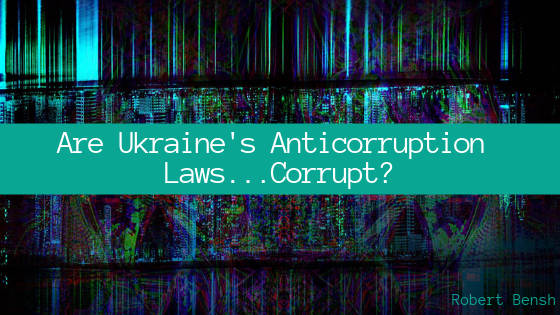A recent ruling by the constitutional court in Ukraine found that a proposed anti-corruption law did not conform with the country’s “presumption of innocence until proven guilty” principles. The law, which was drafted in an effort to meet strict requirements imposed by the International Monetary Fund (IMF), was thrown out and cannot be appealed — a move that has elicited the concern of the IMF and EU.
Prior to its repeal, the anti-corruption law required accused government officials to demonstrate, with proof, the legitimacy of their assets. The court posits that, in order for the law to comply with “presumption of innocence” standards, prosecutors should be charged with proving the illegitimacy of the assets instead. That is to say, it should be the responsibility of the prosecuting party to prove that an accused official obtained funds via corrupt practices, and not the responsibility of the accused official to prove that they did not.
The (now) unconstitutional law made the enrichment of government officials illegal, labeled it as a criminal act, and complied with the IMF requirements for Ukraine to address the widespread corruption suspected to take place within its government. Without it, the country may not receive bailout funds previously promised by the International Monetary Fund in exchange for meeting conditions designed to improve the Ukrainian economy over time.
Further complicating the matter are 65 corruption cases currently in the various stages of criminal proceedings within the National Anticorruption Bureau of Ukraine. All of the cases, involving a total of approximately $20 million in corrupted funds, will be closed without any further investigation.
In an attempt to save Ukraine’s already tenuous relationship with the IMF, current President Petro Poroshenko proposed new anti-corruption legislation within 24 hours of the court ruling. According to Poroshenko, the proposed legislation will preserve the original integrity of the anti-corruption law but take into account the remarks from the constitutional court. He stresses that criminal punishment for illegal enrichment will remain inevitable.
It is important to note that, even if Poroshenko is able to push through new legislation preserving the illegality of illicit enrichment, the 65 closed investigations could not be re-opened because the law would not be retroactive.
Poroshenko is currently running for his second term as President but is trailing in the polls. Many believe that he has not done enough to battle corruption in the Ukrainian government in the past. Others have called for his impeachment due to close associations with an accused individual.
As of March 1st, an IMF spokesperson indicated that the organization was still evaluating the decision and assessing the effect of the ruling.
